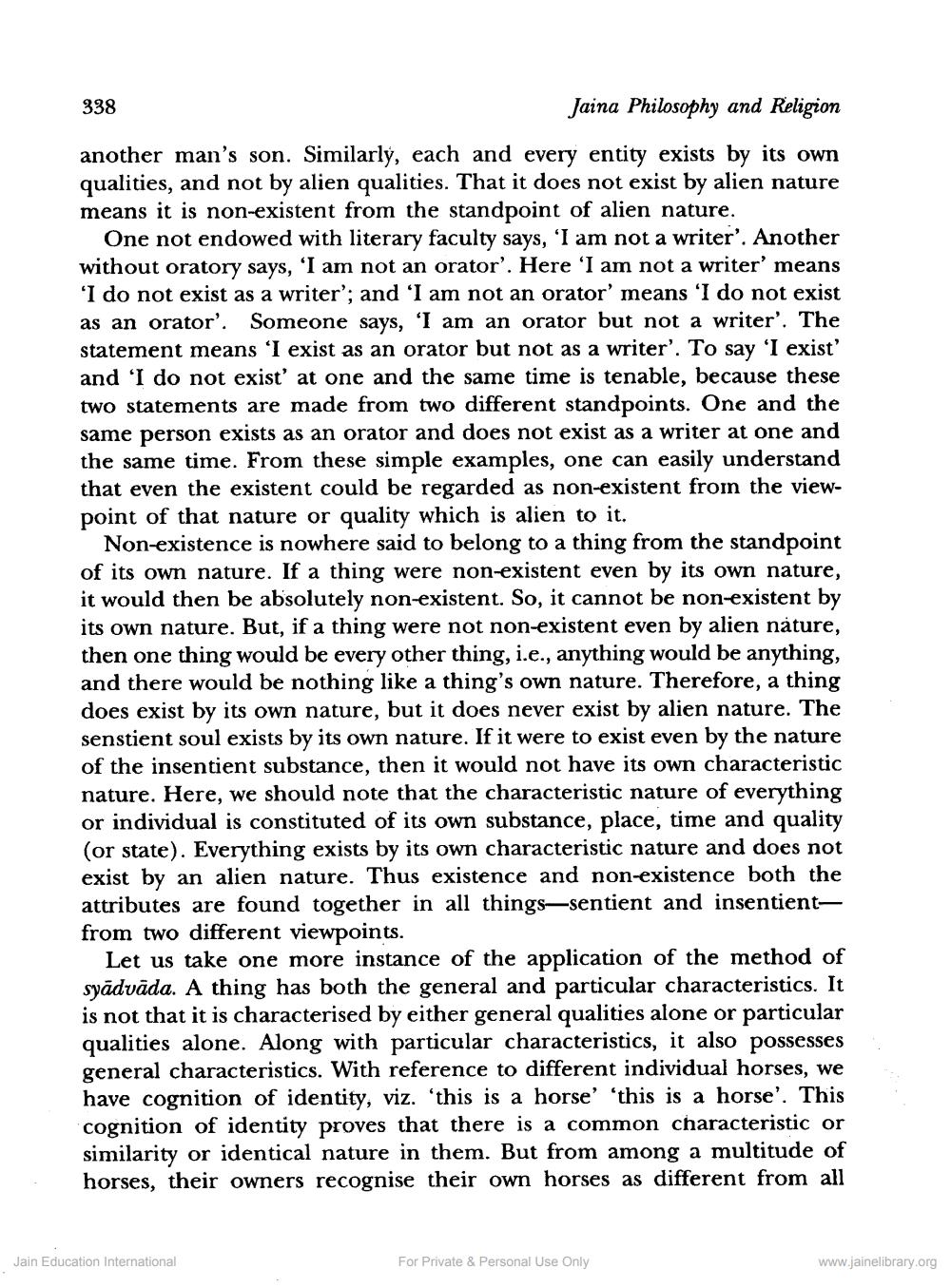________________
338
Jaina Philosophy and Religion
another man's son. Similarly, each and every entity exists by its own qualities, and not by alien qualities. That it does not exist by alien nature means it is non-existent from the standpoint of alien nature.
One not endowed with literary faculty says, 'I am not a writer'. Another without oratory says, 'I am not an orator'. Here 'I am not a writer' means 'I do not exist as a writer'; and 'I am not an orator' means 'I do not exist as an orator'. Someone says, 'I am an orator but not a writer'. The statement means 'I exist as an orator but not as a writer'. To say 'I exist' and 'I do not exist' at one and the same time is tenable, because these two statements are made from two different standpoints. One and the same person exists as an orator and does not exist as a writer at one and the same time. From these simple examples, one can easily understand that even the existent could be regarded as non-existent from the viewpoint of that nature or quality which is alien to it.
Non-existence is nowhere said to belong to a thing from the standpoint of its own nature. If a thing were nonexistent even by its own nature, it would then be absolutely non-existent. So, it cannot be non-existent by its own nature. But, if a thing were not non-existent even by alien nature, then one thing would be every other thing, i.e., anything would be anything, and there would be nothing like a thing's own nature. Therefore, a thing does exist by its own nature, but it does never exist by alien nature. The senstient soul exists by its own nature. If it were to exist even by the nature of the insentient substance, then it would not have its own characteristic nature. Here, we should note that the characteristic nature of everything or individual is constituted of its own substance, place, time and quality (or state). Everything exists by its own characteristic nature and does not exist by an alien nature. Thus existence and non-existence both the attributes are found together in all things—sentient and insentientfrom two different viewpoints.
Let us take one more instance of the application of the method of syādvāda. A thing has both the general and particular characteristics. It is not that it is characterised by either general qualities alone or particular qualities alone. Along with particular characteristics, it also possesses general characteristics. With reference to different individual horses, we have cognition of identity, viz. 'this is a horse' 'this is a horse'. This cognition of identity proves that there is a common characteristic or similarity or identical nature in them. But from among a multitude of horses, their owners recognise their own horses as different from all
Jain Education International
For Private & Personal Use Only
www.jainelibrary.org




